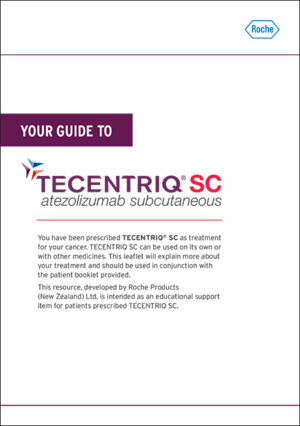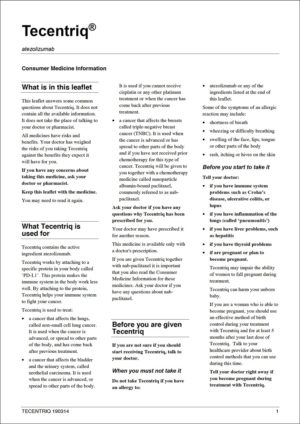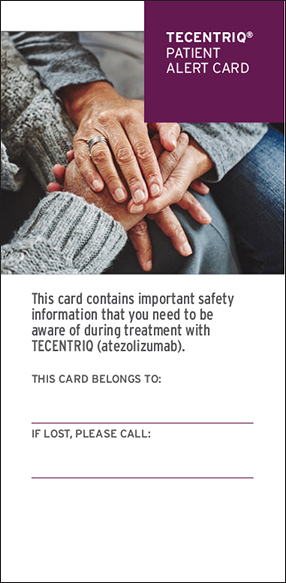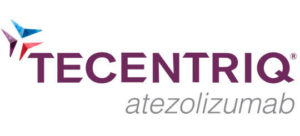Bladder (urothelial) cancer
Tecentriq®
(atezolizumab)
Pronounced Tee-sen-trick
Tecentriq, also known as atezolizumab, is a prescription medicine for the treatment of adult patients with certain types of advanced or metastatic bladder cancer.
How Tecentriq works

Tecentriq belongs to a group of medicines called immunotherapies, which work with your body’s own immune system to fight cancer cells. Tecentriq is not the same as chemotherapy.
Tecentriq works by attaching to a protein in your body, called PD-L1, which is found on some tumour cells. When this happens Tecentriq helps the immune system to better identify the cancer cells and kill them.
Tecentriq can be administered either by intravenous infusion or by subcutaneous injection. Talk to your doctor about which method of administration is right for you.
For more information about Tecentriq, including side effects download the Tecentriq Consumer Medicine Information here.
How to access Tecentriq
Tecentriq isn’t funded by PHARMAC. This means that you will need to pay for Tecentriq at a private treatment centre. If you have health insurance, carefully check what is covered – every health insurance provider has different rules and benefits that cover cancer treatment, surgery, tests and appointments.
To help pay for treatment with Tecentriq, Roche has created a Cost Share Programme to help make it more affordable to patients in New Zealand.
The Cost Share Programme is designed to reduce the cost of the medicine, and caps the number of treatment cycles that need to be paid for. This means that you’ll know the maximum amount you need to pay over a sustained period of time before you go onto treatment.
If you would like to learn more about Tecentriq, make an appointment with your doctor to discuss whether it’s the right treatment option for you.
Ready to take the next step
Because every situation is different, it’s important to speak to your doctor to find out if Tecentriq is right for you.
We’ve put together a discussion guide to help you begin a conversation with your doctor. Print it off, take it along to your next appointment, and take notes in the spaces provided.
Talking to your doctor about Tecentriq
For further information about private treatment providers click here.
You can also talk to your current doctor about referral to a private doctor or treatment centre.
Handy resources

Tecentriq patient resource
DOWNLOAD
Tecentriq SC patient insert
This leaflet is for patients being administered Tecentriq by subcutaneous injection and should be used in conjunction with the Tecentriq patient resource.
DOWNLOAD
Tecentriq Consumer Medicine Information
DOWNLOAD
